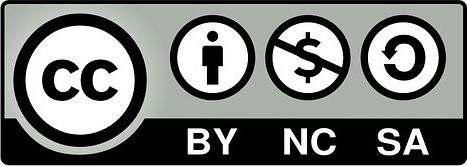NEW SYNTHESIS ROUTE FOR GLYCOLS FROM UNSATURATED VEGETABLE OILS USING HETEROGENEOUS ACIDIC CATALYSTS
DOI:
https://doi.org/10.17533/udea.vitae.623Keywords:
glycols, vegetable oils, heterogenous catalysis, solvent effect.Abstract
Unique structures of fats and oils, together with their physical characteristics provide them a large range
of applications; the reactive unsaturated fatty acids are commonly used to generate compounds with
greater diversity of application (pharmaceutical, cosmetics and food industries). Results obtained in the
hydroxylation of methyl oleate (9-Octadecenoic acid, methyl ester) by producing the epoxide, using
Prileschajew reaction, and the following epoxide opening with water are presented. For both stages the
use of heterogenous meso- and macroporous acidic catalysts based on resins of sulfonated polystyrene
(Amberlite IR120, Amberlyst 15, Dowex50X2) was investigated. To provide a selective hydroxylation of
vegetal oils with percarboxylic acids and heterogenous acidic catalysts, the crucial issue is to maximize
the contact of the intermediate compound (epoxide) with the acidic sites. This can be achieved with acid
resins with low cross-linking level (low DVB content) or with high superficial area. In addition, glycols
production is selectively favored with the use of aprotic solvents with high dielectric constant.
Downloads
Downloads
Published
How to Cite
Issue
Section
License
Copyright Notice and Open Access Statement
The Journal Vitae works under the Open Access license, and the published manuscripts remain available for the public, both on the Journal's website and in databases, under the Creative Commons license, "Noncommercial Attribution" and "Share alike" systems, adopted in Colombia. Hence, when the authors agree to publish in the Journal Vitae, they will not have the right to economic retributions on publications and reproductions through different diffusion media. The documents are freely available to the internet public, permitting users to read, download, copy, distribute, print, search, or link to the full texts and pass them as data to software. The only constraint on reproduction and distribution, should be to give authors control over the integrity of their work and the right to be appropriately acknowledged and cited.
Authors declare that:
-
They are the intellectual property owners and are responsible for all the information stated in the article.
-
This manuscript has not been submitted or published in other printed or digital media. They accept the responsibility for the judgments, opinions, and points of view expressed in the published article and, therefore, they exonerate Universidad de Antioquia and Journal Vitae from any process.
-
They exempt Universidad de Antioquia and Journal Vitae from settling conflicts or disputes related to the authorship of the referred article.
-
They accept the revision of the original manuscript by suitable personnel, and they bind themselves to perform the corrections appointed or suggested by the assessors.
-
Therefore, they know the editorial process and will not bind the Editorial Board of the Journal to assume any obligations regarding the volume and issue in which the article is published.
-
They transfer the rights of publication, reprinting, and distribution of the article from the moment of its approval, in print and digital format, without the right to economic rewards, and under the licensing conditions considered relevant by Journal Vitae.
-
They fully authorize Universidad de Antioquia and Journal Vitae to submit the published material to the diverse databases and indexing systems where the Journal can be found to comply with the requirements of the regulatory authorities to maintain the national classification of journals.
-
They will assume the article publication costs established for the current issue, and they will make the payment as soon as they are informed about the volume and the issue in which the final version of the article is published.
-
After the article is published, you can share digital or printed copies in a noncommercial manner. You will be able to use the paper in your institution or company for educational or research purposes, including the use in course programs.
Conflict of interest: Authors are responsible for recognizing and disclosing any financial or other benefits that could be perceived to bias their work, acknowledging all financial support and any personal connections with potential sponsors. Examples of such conflicts include receiving research funds or honoraria, serving on advisory boards, stock ownership, or employment and consulting arrangements. Authors without such connections should clearly state that they have no financial support or personal relationships that could be perceived to bias their work. All conflicts of interest should be disclosed on the author's identification page of the manuscript.










